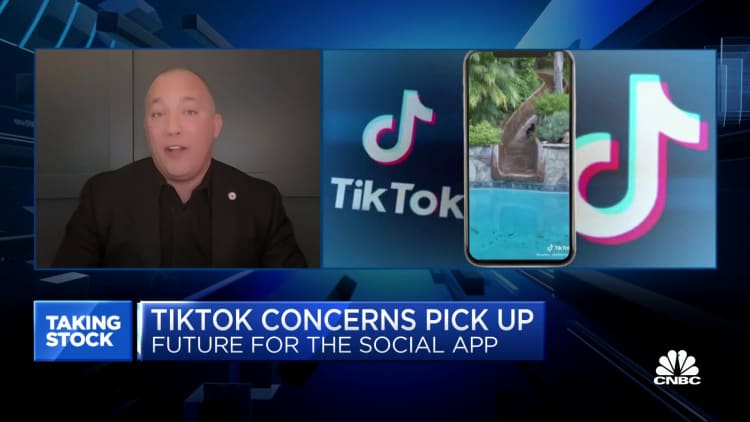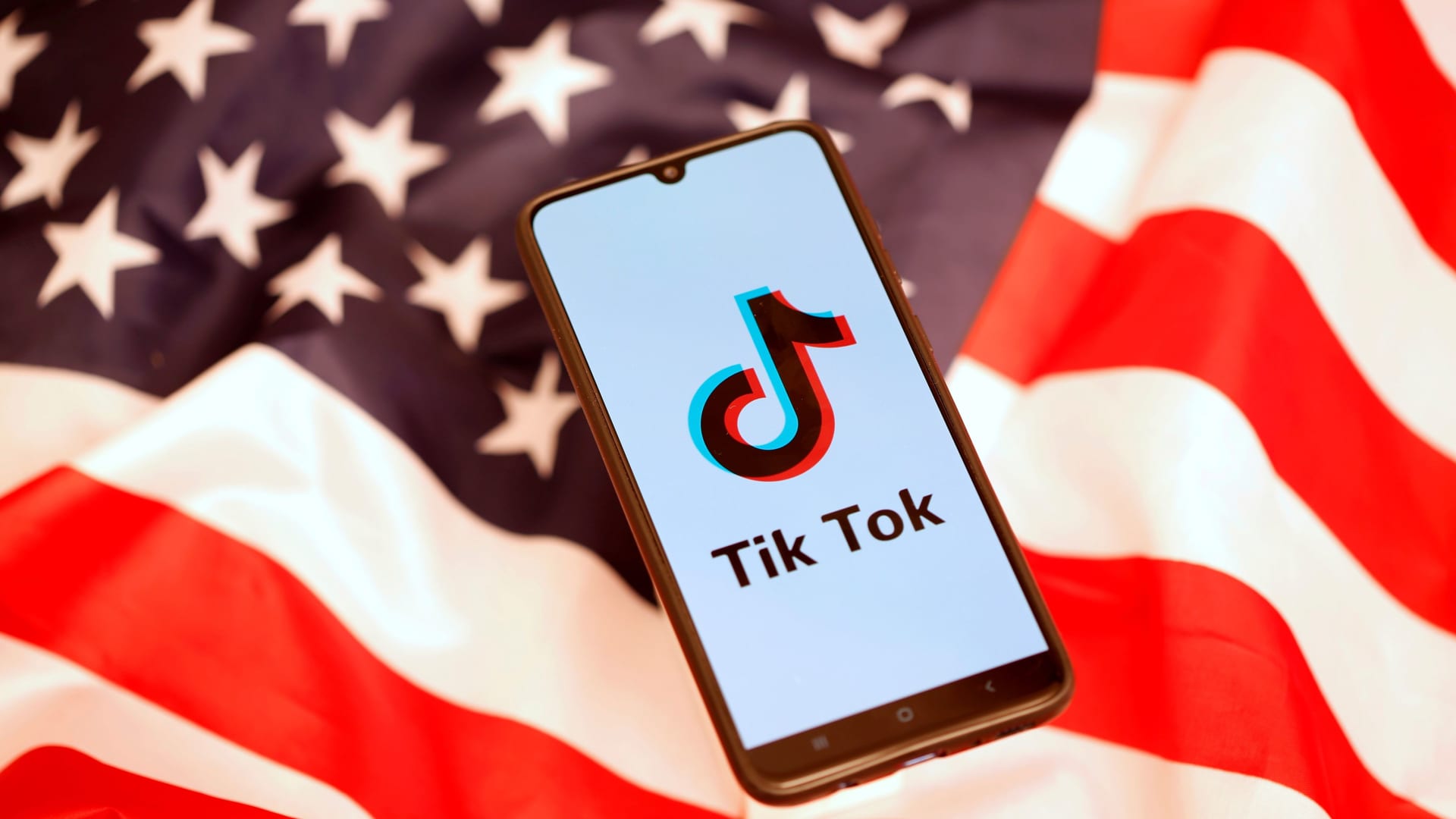TikTok logo is displayed on the smartphone while standing on the U.S. flag in this illustration picture taken, November 8, 2019.
Dado Ruvic | Reuters
Investors in Meta, Snap and other U.S. digital media companies have been looking for signs of a rebound after a tumultuous 2022. They got some unexpectedly optimistic news this week.
The U.S. House Foreign Affairs Committee on Wednesday voted to advance legislation that would give President Joe Biden the authority to ban TikTok, the viral video app owned by China’s ByteDance that’s been swiping market share from social media stalwarts.
Meta climbed 1% on Wednesday, and Snap was unchanged.
“Implications are great for anybody that has been losing market share to TikTok,” said Laura Martin, an analyst at Needham, in an interview. She said Snap, Meta’s Facebook and Google’s YouTube could be “huge beneficiaries” if the ban ultimately takes place.
TikTok has been on a meteoric rise in the U.S., and its impact was particularly noticeable in 2022, as a sputtering economy pulled down the online ad market.
In 2021, TikTok topped a billion monthly users. An August Pew Research Center survey found that 67% of teens in the U.S. use TikTok, and 16% said they are on it almost constantly. According to Insider Intelligence, TikTok controls 2.3% of the worldwide digital ad market, putting it behind only Google (including YouTube), Facebook (including Instagram), Amazon and Alibaba.
But data privacy concerns have been growing with TikTok because of its parent company, which is based in China and privately held. Congress banned TikTok from government devices as part of a bipartisan spending bill in December, several governors have removed the app from state computer networks —including at public universities — and Sen. Josh Hawley, R-Mo., renewed calls for a complete nationwide ban in January.

“A U.S. ban on TikTok is a ban on the export of American culture and values to the billion-plus people who use our service worldwide,” a TikTok spokesperson said Wednesday. “We’re disappointed to see this rushed piece of legislation move forward, despite its considerable negative impact on the free speech rights of millions of Americans who use and love TikTok.”
Even with the legislation that came before the committee this week, lawmakers have a long way to go before any real ban could be implemented. Assuming this bill gets through the Republican-controlled House, the Democratic majority Senate would have to pass some version of it, which will be a challenge based on the opposition that has already been voiced by some Democrats. If it did pass the Senate, Biden would still need to decide whether to veto it or sign it.
TikTok is no stranger to challenges from U.S. officials, as former President Donald Trump declared his intention to ban the app by executive action in 2020.
ByteDance looked to potentially spin off TikTok to keep the app from being shut down, and the company forged an agreement with Trump that was to include partnerships with Oracle and Walmart, which would both become investors in TikTok.
Those deals fizzled, but Martin said it’s possible that the app could be successfully acquired this time. In that case, TikTok might be a weakened competitor and experience a period of uncertainty, but “it wouldn’t just disappear and get shut down,” Martin said.
Andrew Boone, an analyst at JMP, said Meta likely stands to benefit the most should TikTok face a U.S. ban. Facebook has been pumping money into its TikTok rival, Reels, which has yet to establish a revenue model that’s as effective as the core newsfeed.
Mark Zuckerberg, chief executive officer of Meta Platforms Inc., left, arrives at federal court in San Jose, California, US, on Tuesday, Dec. 20, 2022.
David Paul Morris | Bloomberg | Getty Images
Meta said during its fourth-quarter earnings call that it expects Reels to become revenue neutral by the end of the year or in early 2024. Video plays on Facebook and Instagram more than doubled within the past year.
“If TikTok were to go away, I think that there would be a lot more consumption of Instagram Reels,” Boone said in an interview. He said Snapchat’s Spotlight, introduced in 2020, and YouTube Shorts, which came out in 2021, “would also benefit.”
All three platforms had a rough 2022. Meta shares lost two-thirds of their value as the company experienced three consecutive quarters of declining revenue. Snap’s stock plummeted 81% as growth dipped into the single digits, and the company opted not to provide a forecast for two straight periods. YouTube advertising revenue fell short of analyst expectations in the fourth quarter, dropping 8% from a year earlier.
The rush to copy TikTok hasn’t gone over well in many circles.
In July, Instagram CEO Adam Mosseri shared a video explaining changes to the social media platform after celebrities like Kylie Jenner and Kim Kardashian criticized the app for “trying to be TikTok.”
A post urging the company to “make Instagram Instagram again” amassed more than 1.6 million likes and resulted in nearly 140,000 petition signatures. A month later, Mosseri announced his plans to move from San Francisco to London to help Meta lure users away from TikTok.
— CNBC’s Christina Wilkie, Lauren Feiner and Jonathan Vanian contributed to this report
WATCH: TikTok possibly being banned







